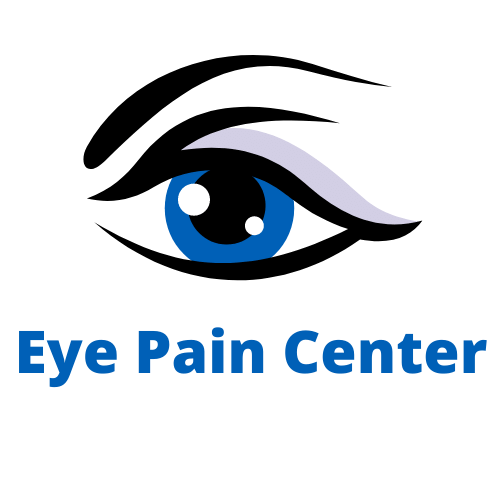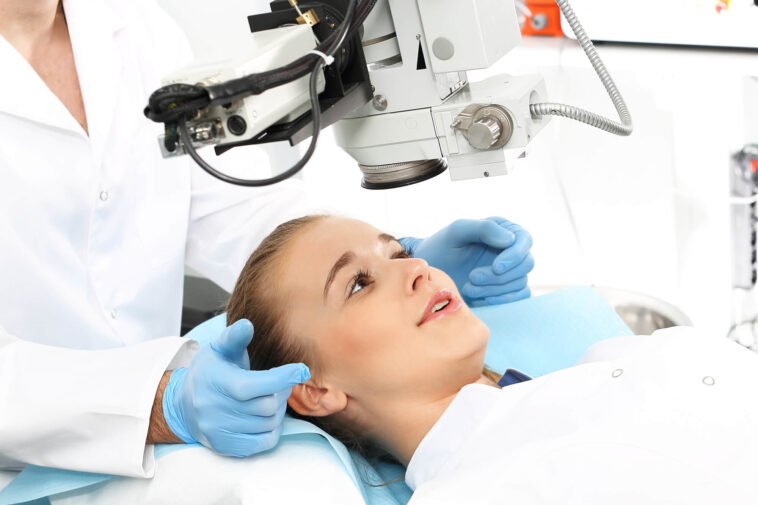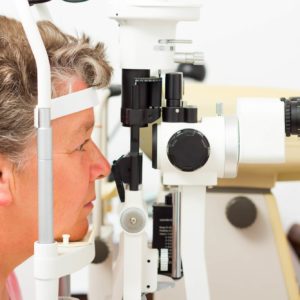Cataract surgery cost may vary based on the condition of the eye and the doctor performing the surgery. There are some averages that a person can go on to determine the cost of the surgery. The average price that a person will need to pay is around $3,500 per eye. This is the cost of the surgery that is not covered by a private insurance company or Medicare. There is also an additional expense. The cost of an anesthesiologist will run a person another $250. This is a service that people cannot go without.
Many people that have this surgery are over the age of 65 years old. At this age, they are often covered by Medicare services. Those people that not eligible to be covered under Medicare.
They may also have some private insurance. Medicare will cover around 80 percent of the cost of cataract surgery. The consult will explain the pricing and how much money a person can expect to pay for this procedure. These are average, and some factors are going to impact the exact price.
Many different factors can influence the cost of cataract surgery. Two of the biggest things that will impact this surgery’s price are the technology that will be used and the techniques that the doctor will use. When the surgery involves lasers, it can cost an additional $1,500 for each eye.
The doctor can use some traditional methods, which may cost less, but it may not be as quick.
Choosing a Lens Implant
The type of lens implant is going to have an impact on the cost. The lens implant is known as the IOL. There are two main categories when it comes to lens implants. There are the toric IOLs that will help people with astigmatism, and there are also the refractive IOLS.
They can be used to help people that have presbyopia. There is the additional cost of having the procedure. The cost of cataract surgery where the toric IOLS are used will cost a person around $1,500. The refractive implants are going to cost more money. On average, they will cost around $2,500. If a person can have the surgery where the premium refractive lens is used, the cost can be $5,600 or even more.
There are some of the best lenses, and they use the latest technology. They are better than the standard lenses that are the monofocal implants. The basic model can be used in the most basic cataract surgery. This will help correct people that have trouble seeing at a distance. They are not able to correct people that are suffering from astigmatism.
Other Factors that Impact the Cost of Cataract Surgery
- The location where the procedure is performed. Some areas of the country may be more expensive than others.
- If the surgery is going to be performed at a hospital, it can be performed at an outpatient center.
- The skills and experience of the doctor performing this procedure.
- The type of implant that is going to be used.
- The determination if a laser is going to be used or not.
- Any pre or post-operative visits that may be needed.
- Any medications that may be prescribed after the procedure.
- Any pre or post-testing that will need to be done.
These factors are going to have an impact on the cost of treatment. The biggest thing that determines the out of pocket expenses is the type of insurance coverage that a person has and how much of the insurance will cover.
Coverage Through Private Insurance and Medicare
Cataract surgery is said to be a medical necessity; the insurance company is going to cover this procedure. Private insurance will cover the majority of the cost, while Medicare will cover most patients. Medicare in the United States is a federal insurance program that will provide insurance coverage to over 65.
Medicare Part A is free for most people over this age; part B will have a monthly premium. The cost will then be between $100 and $135.
Cataract surgery is performed in an outpatient clinic. A person will be able to have this procedure at the hospital or the doctor’s office. They can go home the same day as the procedure.
If a person has Medicare Part B, this will cover the outpatient treatment program and the doctor’s cost.
Medicare and private insurance will cover the standard cost of the surgery and the mono-focal implants, the cost of additional procedures for refractive surgery, the premium implant, and the use of a laser may be covered.
Medicare will cover close to 80 percent of the cost. This will cover the standard procedure and the use of a laser. The patient is responsible for the other 20 percent of the cost once they have paid their deductible. The deduction for Medicare Part B is $183.
There is an example of the cost of the surgery and a breakdown of the cost. This is for someone that is having this procedure and is covered by Medicare.
There is an example simulation below which can be used for reference. Keep in mind that this is just an estimate, and the cost will vary based on the needs of the customer and the exact procedure that they are having.
- Standard Cataract Surgery : $3,500
- Medicare Coverage: $2,800
- Out-of-Pocket : $700
- Deductible: $183
- Total Cost to Patient :$883
When a person has the standard surgery, Medicare will cover:
- The removal process of the cataract.
- The basic lens implant being used.
- A pair of prescription eyeglasses are used, and one set of contact lenses is used after the surgery.
If the implants’ premiums are going to reduce the cost of the glasses or the contacts that a person will need, they are going to need to cover the difference.
For example, if a patient looks at the cost breakdown that was viewed above and still wants to have this procedure performed with a premium implant to correct their astigmatism, they will need to be responsible for paying the $883 and the $1,500, which totals $2,383. This is the average cost for their procedure.
If the patient has the options for a premium implant, they will need to cover the $883 and $2,500 for a total of $3,383; if the patient is looking to have a laser used in their procedure, they will be responsible for an additional $1,500.The premium cataract surgery can be double or triple this cost.
Closing the Gap with Medigap
If the premium options are high and Medicare does not cover the out-of-pocket costs, then there is the option to make up the difference with Medigap.
This is the policy that is offered by the private insurance carrier. Medigap plans can supplement Medicare coverage and decrease the amount of money that a person will need to pay out of their pocket.
This plan is like traditional insurance coverage but is more narrow. These plans do have their deductible, and they need to be met before the insurance coverage will take over.
Is it Possible to Reverse Cataracts Without Needing Surgery?
Cataracts are a common eye disease. Based on information from the National Eye Institute, by the age of 65, around one-quarter of the people will have some form of clouding in the natural lens of their eye. This is known as cataracts. The likelihood of this condition increases with each decade that a person ages. This usually starts at the age of 40. By the time a person is 80, the chance of developing cataracts is around 50 percent.
If a person does have cataracts, they may notice a decrease in the quality of their life. They may have blurry vision, and it may be harder to see bright lights. A person may also have trouble seeing at night. Some colors may be duller than in the past. If a person does not adequately treat their cataracts, they will eventually go blind.
If a person has cataracts, they will notice a decrease in their quality of life. Cataracts will make the vision blurry, and it will be harder to see common items. Surgery is always an option, but many wonder if this can be reversed without surgery. Keep reading for additional information.
Is it Possible to Reverse Cataracts Without Surgery?
In 2015, a paper was published about the American Association for Advancement of Science research. This paper stated that scientists were able to discover Compound 29. This compound is water-soluble and is hereditary.
This study looked at the effect of Compound 29.
Another compound that is called lanosterol has been studied as a way to treat cataracts. It is not water-soluble, but it can be included in an eye drop solution.
There is no nonsurgical cure for cataracts approved by the Food and Drug Administration or other government bodies.
Can Cataracts be Cured Naturally?
There are not natural cures to treat cataracts. The Mayo Clinic has found some lifestyle changes that can be made to help slow the progression of cataracts.
A person should go for regular eye exams to look for early signs of problems.
- Stop smoking, reduce alcohol consumption, and take care of health problems. Conditions such as diabetes can cause problems with cataracts.
- Eat more fruits and vegetables. A diet with minerals and vitamins will help reduce the risk of cataracts.
- Wear sunglasses to reduce exposure to ultraviolet lights.
- Ask the eye doctor about how prescription medications will have an impact on cataract.
Can Cataract Be Cured with Eye Drops?
The National Institute of Health states that the only cure for cataracts stated that surgery is the only treatment for this condition.
Can the Progression of Cataracts be Slowed?
Studies have not found anything to slow the progress of cataracts. The Department of Ophthalmology suggests using steroid eye drops to help the eyes. A person should also avoid medications that may affect the eyes as a side effect.
What Happens If Cataracts is Not Treated?
This surgery may not be the first option to treat cataracts. The condition may not affect the quality of life. If it does get worse, it may impact driving and other daily tasks.
If this is left untreated, a person may become legally blind over time.
Cataracts can also develop into a more severe condition and become hyper mature. This will lead to complications during surgery. People that this may want to get the surgery before something happens and they cannot see. The earlier the condition is detected, the more successful the treatment will be.
Like with any other conditions, it is crucial to have eye exams regularly. If a person feels their vision is getting worse, they should see their eye doctor right away.
Can Blindness From Cataracts be Reversed?
The blindness can be reversed; this needs to be done with surgery. There may be some complications, and for the rest results, a person should have their surgery before they become blind.
Conclusion
If a person needs to speak to a specialist if they notice eye problems, they should find out the best options for them and their specific condition. The earlier that condition is detected, the safer it will be to treat.
A person should meet their eye doctor often to ask about the different treatment options. The procedure should not cause discomfort and is safe when performed by a qualified professional. The positive results of this surgery can be life-changing.






